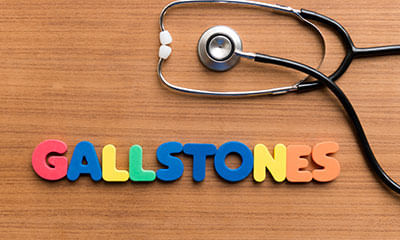Get the App
For Doctors
Login/Sign-up
Last Updated: Oct 23, 2019
BookMark
Report
Diet for Gallstone
Dt. Neha SuryawanshiDietitian/Nutritionist • 20 Years Exp.M.Sc. in Dietetics and Food Service Management , Post Graduate Diploma In Computer Application, P.G.Diploma in Clinical Nutrition & Dietetics , B.Sc.Clinical Nutrition & Dietetics
Recommended foods:
- Vegetarian food is recommended. It should contain green leafy vegetables, such as spinach, lettuce, coriander, curry leaves.
- Other vegetable like beets, carrot, radish, broccoli, brussels
- Spices like turmeric, garlic, cloves, cinnamon are excellent
- Fruits- grapefruit, sugarcane juice, strawberries, lemon, oranges, apples, avocados, and walnuts
- Include whole grain varieties of starchy carbohydrates like bread, rice, cereals, pasta, potatoes, chapattis and plantain
- High fiber foods like beans and pulses should be included
- Drink plenty of fluid – at least two litres daily, such as water or herbal teas.
- Have small frequent meals.
Diet for gallstone:
- Grains are an extremely healthy addition to the diet. Add foods such as whole grain breads, bran flakes, whole wheat cereals, brown rice and whole grain pasta to your diet. This will help to flush out waste material from your system.
- Water soluble fiber is found in fruits such as blueberries, oranges, strawberries and blackberries. It is also contained in dried fruits such as apricots, prunes and raisins. You should eat about two to four servings of fruits every day.
- Include in your diet vegetables such as kidney beans, green beans, broccoli and corn. It is advisable to have about three to five servings of vegetables daily.
- It is important to know which foods can trigger an episode of gallstones. These foods include onions, eggs, salty foods, cow’s milk, sugary foods, spicy foods, alcohol and processed foods.
Foods for moderate consumption:
Limit the use of oil, ghee, butter, dairy and fruits like custard apple, and sapota (chikoo)
Foods to avoid:
- Alcohol in any form should be completely avoided
- Non-vegetarian food should be avoided this includes sea food, lean meat, eggs.
- Completely avoid frozen, preserved, or canned foods including chips, soups, meats or vegetables, they are known to have high salt or sugar which may lead to fluid retention.
- Avoid sugary foods such as chocolates, ice-cream, candies and cake.



+1.svg)
